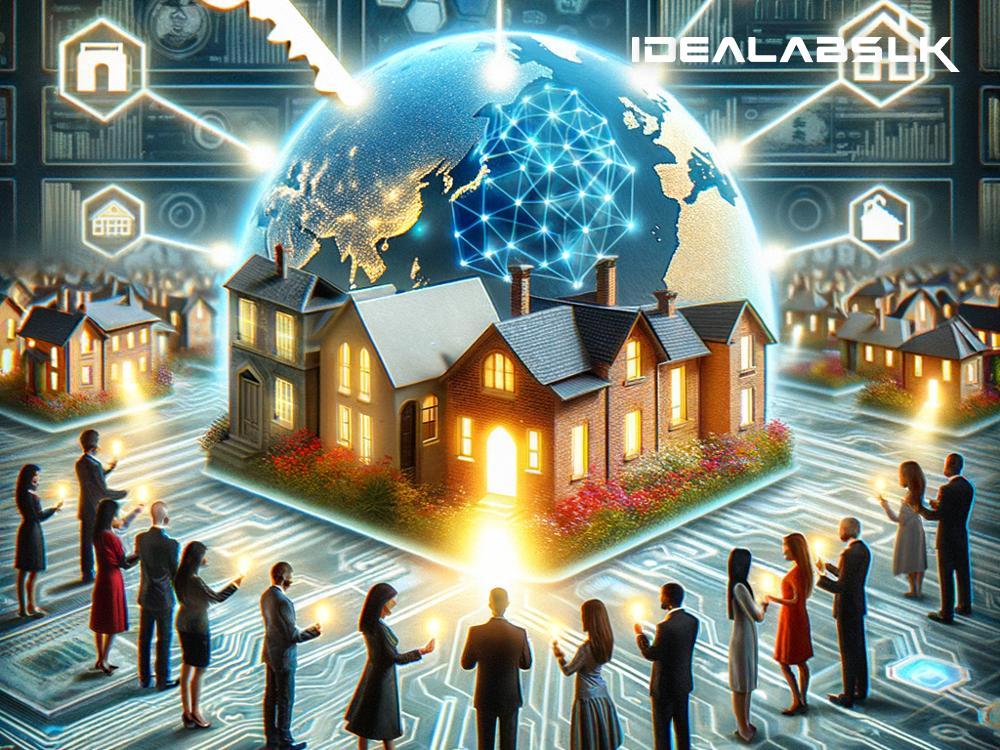Blockchain for Real Estate: Decentralizing Property Deals
Welcome to the fascinating world of blockchain and its sweeping impact on various industries! Today, we're diving into an area you might not immediately associate with high tech: real estate. Surprised? Let's explore how decentralized platforms are beginning to transform property deals, making them more efficient, transparent, and accessible.
Understanding Blockchain in Simple Terms
Before we get into the nitty-gritty of blockchain in real estate, let's ensure we're all on the same page about what blockchain is. Imagine a digital ledger, similar to a notebook, that securely records transactions. Each page of this notebook is a "block," and the "chain" is the line that connects these pages. The magic? This notebook is not kept in one place but is copied across a network of computers. This makes it incredibly difficult to tamper with, as altering one page in one copy would mean having to change it in all copies, which is virtually impossible. This system, known for powering cryptocurrencies like Bitcoin, is what we call blockchain.
Disrupting Real Estate: The Blockchain Effect
Now, how does this technological marvel intersect with buying and selling properties? Here's a rundown of the transformative impact blockchain is having on real estate:
Making Transactions Transparent and Secure
Real estate transactions involve a lot of paperwork and middlemen, from agents to lawyers. Blockchain introduces a level of transparency and security that was previously unheard of. Transactions recorded on a blockchain are visible to all parties involved and are secure from tampering. This reduces the need for so many intermediaries, potentially lowering closing costs and speeding up the process.
Streamlining Property Management
Managing a property involves an avalanche of documents, from leases to maintenance records. Blockchain platforms allow all these documents to be securely stored and easily accessed, simplifying property management. This can be especially beneficial for landlords who manage multiple properties or for real estate investment trusts (REITs).
Democratizing Real Estate Investing
Investing in real estate typically requires a significant amount of capital. However, blockchain is enabling new forms of investment such as real estate tokens. These tokens represent shares in a property and can be bought and sold on blockchain platforms. This means that investing in real estate can become more accessible to a wider range of people, not just those with deep pockets.
Improving Title Management
One of the most tedious aspects of buying a property is ensuring the title is clear — that is, making sure the seller truly owns the property and can sell it. Title fraud is a real concern. Blockchain can revolutionize this by providing a tamper-proof record of ownership history, making it easy to verify titles and reducing the risk of fraud.
The Road Ahead: Challenges and Opportunities
Despite its potential, integrating blockchain into the real estate sector is not without challenges. Regulatory hurdles, the technical complexity of blockchain technology, and the inertia of traditional real estate markets can slow down adoption. However, the opportunities are vast.
As blockchain platforms become more user-friendly and regulations evolve to accommodate new technologies, we can expect to see more real estate transactions moving to decentralized platforms. This could lead to a more dynamic, efficient, and inclusive real estate market.
Conclusion: A Future Built on Transparency and Trust
The intersection of blockchain and real estate is not just about adopting new technology. It's about building a future where property deals are more transparent, secure, and accessible to everyone. Decentralized platforms promise to cut through the bureaucratic red tape, democratize investing, and ensure that property management is a breeze.
Of course, we're not there yet. The real estate industry is known for its complexity and resistance to change. However, as more people understand the benefits of blockchain and as technology continues to evolve, the vision of a decentralized real estate market seems increasingly achievable.
In essence, blockchain has the potential to not just transform how we buy, sell, and manage properties, but to redefine the very nature of property ownership. As we stand on the brink of this transformation, it's an exciting time for both the tech world and the real estate industry. The properties of tomorrow may just be bought and sold in ways we are only beginning to imagine.

